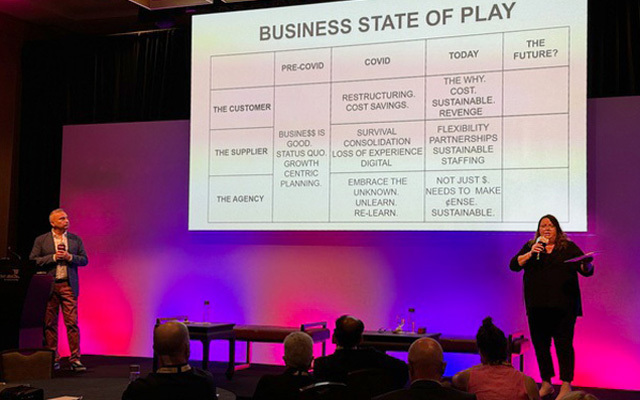
Events’ impact on economies and their ability to develop innovative problem-solving methods and adapt to evolving demands are concepts shaping the future of the business events industry post-lockdown.
During the State of Play – Business Models for The Business Events Industry session at PCMA’s The Business of Events conference, held at Marina Bay Sands, Singapore on April 15, speakers Lisa Hopkins, CEO of Business Events Industry Aotearoa, and Sanjay Seth, managing director of Asia Pacific at BCD Meetings & Events, discussed how the pandemic forced the industry to adapt before thriving.

Hopkins shared: “In New Zealand, we went for five solid months (August 2021 to December 2021) with no revenue. Our government provided support, but it never replaced pre-Covid earnings.”
Fortunately, the pandemic made the business events industry “very visible” and showed its “strong economic impact,” she noted.
“One of the helpful things that our government did was to put out a scheme where event organisers could claim back 95 per cent of unrecoverable costs should the country be shut down in case of another outbreak. This was one of the changes they made, from never underwriting an event, to changing their tune at the end,” said Hopkins.
Commenting on the increased importance of the business events sector to a country’s economy, Seth said: “Singapore’s events industry was pulled in for the first time to have strategic discussions with the government.
Hopkins opined: “Every event (moving forward) has to have some sort of impact on community, country, or people. In the past, we built schools and bikes, but I think it’s going to go deeper than that. (For example), Tourism New Zealand is very strategic about the kind of conferences coming into the country, (with a focus on) the positive impact they will have on its people.”
Meanwhile, Seth pointed out that organisers would require creative thinking and solutions-oriented approaches to deliver innovative and engaging experiences. He added that the industry should also embrace data intelligence, as “data will affect strategy” and help organisations make informed decisions and measure impact.
Despite the industry’s revival, the quest to attract fresh talent remains a challenge. Veemal Gungadin, CEO of Gevme, who was among the audience, opined: “This industry isn’t attractive and may not appeal to the younger generation. Fortunately, we’re hearing from educational institutions in Singapore and Malaysia that cohorts for tourism and hospitality are increasing in numbers.”
As such, Seth pointed out it was necessary to “evangelise the industry better because no one else is going to do that for us”, as it boils down to those currently in the industry to “want to change that perception”.




















